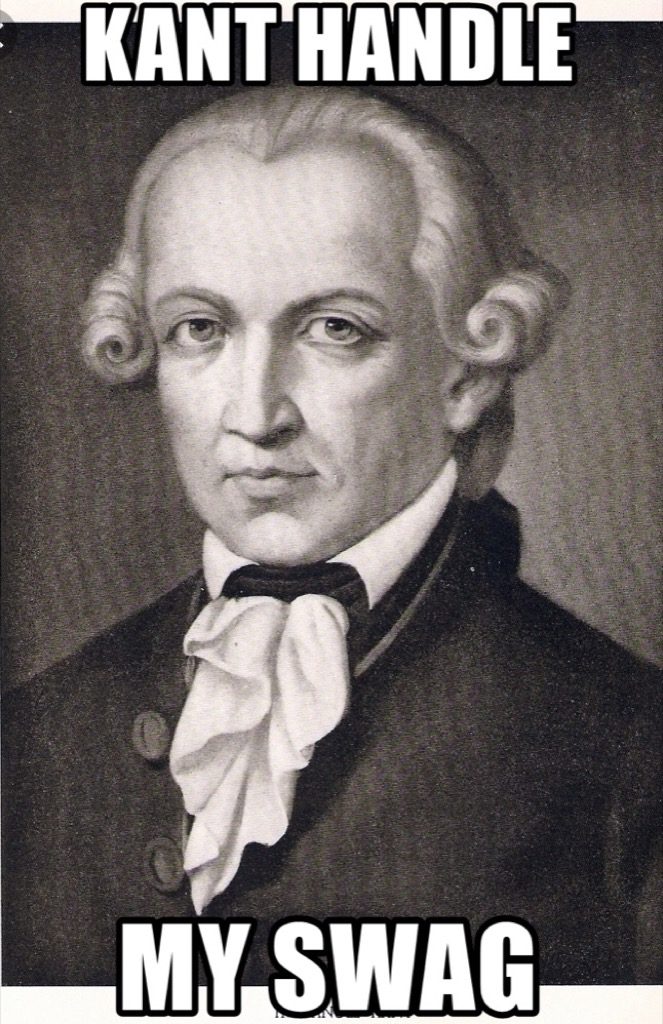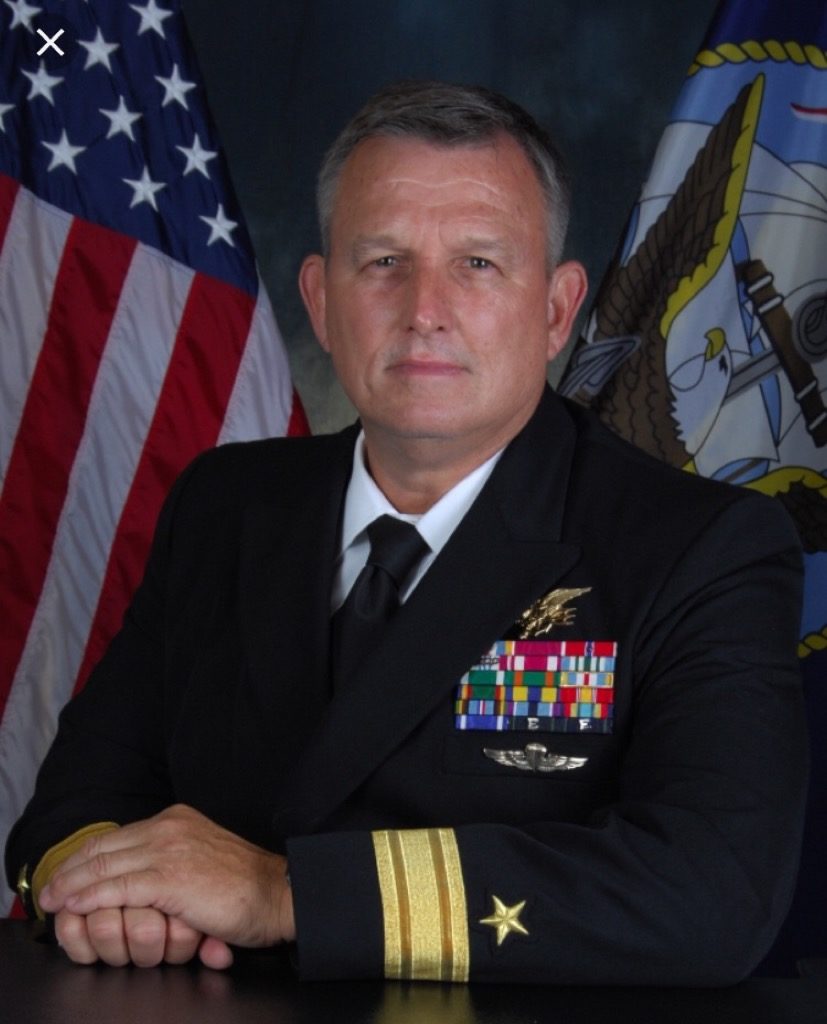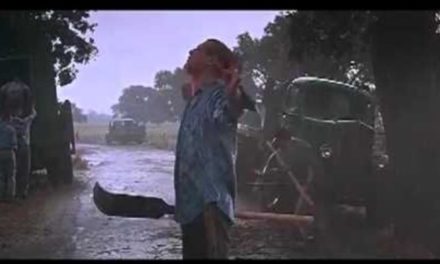Grades finished. Classes closed. The battle over. Another year of teaching in the books. All of the inevitable “next years” come to the fore as one school calendar gives way to the next. I often wonder, do people in other professions function this way?
It’s Sunday evening in Tampa. On the eve of AP scoring, I find myself in a space of existential wandering in my profession—an instructor of writing, philosophy, and film. Tomorrow, I will embark on the assessment of the work of hundreds of thousands of students who took the AP exam. After investing a year in the classroom instructing my pupils with this test in mind, I switch roles and become a different cog in the system of evaluating student writing—assessing the “national” standards on which they are all judged.
All this seems like a natural confluence. However, as I sit over my first plate of Tampa Convention Center quinoa salad of the week (ah, the meal that never fails), the waters of the Hillsborough bleed through the channels under the golden sun into the sea and teachers return to familiar channels—returning from Publix, libations in hand to share notes from the past year—and my mind begins to wander how all these molecules of freedom hold together.
Unlike much of life, a teacher’s world is somewhat predictable in these yearly cycles. Teach. Tweak. Repeat. Yet every few summers, this professional reassessment goes a bit deeper, a bit darker as musings of techniques and content give way to the shadowy realm of purpose. Why am I doing this in the first place? What good am I doing in this position?
Such thoughts have been brooding with me before I first read “Is Philosophy OK?” by Robert Gressis, but certainly it kicked my mental wandering in the pants. In the essay, Gressis challenges himself to construct an air-tight argument to justify his continued instruction of Immanuel Kant to undergrads. He fails. His argument—though perhaps a bit of a philosophical word game—bespoke the lament of my teaching soul. There are all sorts of ways in which I justify teaching to myself as important, and teaching writing and rhetoric and argumentation specifically as societally important, both as motivation to myself but also context to my students. But as Gressis points out, sometimes when we look at the lines of overall impact on students, they can seem tenuous and insubstantial, wondering what students retain of our lessons as year bleeds on to year.

Perhaps I’ve got Gressis on the content front. He teaches an esoteric (though widely respected) dead German philosopher; I teach rhetoric, lively and ever changing, the lifeblood of democratic debate and daily interaction. I teach students to enter the grand conversation; to better sniff out the bullshit; to craft ecstatic, beautiful, meaningful prose. Or so I tell myself. But like the Sophists of old, I feel that those who truly get rhetoric and language use it for the most perverse purposes—selling useless trinkets, peddling destructive ideas, obfuscating the truth.
For everyone else, writing can become a pro forma exercise in gate keeping mentality, showing the academic institution that one can follow a proscribed set of rules to achieve an ultimate goal—high AP scores to get into a good college to get a degree, etc. As Gressis suggests, sometimes getting through college merely proves to prospective employers that you can conform to a system and jump through a series of hoops, whether or not you remember anything about Kant or logical fallacies or any content that may actually be taught. As the world continues to speed up, students often crave a quick formula to give them the simplest way to master this task to move on to the next, even if none of the content learning actually occurs.
Even as I prepare to sit at a table with other professionals to discuss and evaluate writing, progressing technology has certainly been spurring this fear of formulaic mentality in the process of writing. We word dorks often hold out as the bastion of interpersonal education like it’s the last stand on Fiji. Writing, we claim, is about meaning, and unlike factual recall and math problems, we can’t be automated. Except, that’s not entirely true. More and more, years of five-paragraph modeling and the codification of writing conventions has led itself to a proliferation of algorithmic assessments of writing. The more we can objectify the rubric, the more we can program a reader or a computer to look for certain qualities. According to David Labaree’s “The Five-Paragraph Fetish”, our love of the five-paragraph model has mutated into the gold standard for academic writing: students can’t break out of it even when we implore them to do so. So writing a sensible 5P becomes the gold standard, with predictable structure and transition, all of which allows the distinct and provable possibility that a student (or an essay generator) could craft a work of writing that is completely devoid of actual meaning but fits the formal conventions.
TL:DR? You can vomit certain words and put it in the right form and still get a grade that moves you on to the next task. (Don’t believe me? Try the Babel essay generator here). This is the very definition of the gate-keeping mentality in education. All tasks are designed to give a student entrance to the next level, not necessarily to learn or master content. We all have seen this in the students perfectly content to get a grade devoid of a skill, who subvert the intent of learning and still finish an assignment, a student who cheats in spirit, whose fixation on a grade frustrates their ability to have the joy of learning for learning’s sake. Master the formula and move on.
To be honest, AP does better than most people give it credit for avoiding this formulaic write-by-numbers approach by hiring live reading and giving students great latitude to be proficient, (That’s really all I can say on social media about the super-squirrely-sworn-to-secrecy process), but this general trend—toward standardized writing evaluation and the continuing devaluing of long-form print media—has caused me to scrutinize the purpose, value, and trajectory of my own profession—not in a way that will make me walk the desert sands as an educational apostate, but it may make wander through the valley of the shadow for a while while I consider what direction we will take next. As a writing teacher, I’ve always thought of the idea of writing as a tool of discovery that organizes thought as one of the primary purposes in its inclusion in the academic pantheon. If it can be reduced to a rote exercise, what value am I actually adding to the human experience by continuing its instruction? How am I advancing the fate of the human race? If I’m just teaching rote exercise, what is it all worth?
I had already been thinking about all of this before I got on the plane to Tampa and ended up sitting next to Ed Winters. Early in the flight-long conversation, I decided that I would talk little and listen more as this guy regaled me with tale after tale of his years working in the military. (It’s not super secret. It’s up on Wikipedia.) From a decision to join the SEAL’s at a young age to his justification for what it was all for, I got a broad picture of his professional life from beginning to end, one in which we often have to reconsider what our life’s work means.

Look, I have my political opinions, but I generally feel like a noob discussing matters of military movement with people who have actually been in the military. Ed was very generous with his time and knowledge, and I greatly valued his openness about being in the place where the hard decisions were made, where things could’ve gone either way. Regardless of the incident—from re-capturing a highjacked cruise ship to negotiating with the Iraqi government—Ed seemed to have a clear idea of why he did what he did, what should’ve been done differently, the difficult choices needed to move the stream of the human race forward. By committing himself to the path of a soldier and a SEAL, he often found himself in positions where he had to make decisions; now as he had retired, it seemed he was taking the time to work through and discuss what those actions meant, to reflect on the meaning of his career, his profession.
I wondered in my own indecisive malaise if he had any moments like mine, where he looked on the field of battle and wondered what it all was worth, if the shifting winds had changed beneath him, forcing him to re-assess and recalibrate his life in his profession. This thread lead me back to one of the most famous warrior epics in human history, The Bhagavad-Gita (or “The Bhag” to my HL peeps). The story opens with Arjuna, a general, surveying the battlefield where he is soon to go to war. In trying to see the big picture, Arjuna is paralyzed with indecision; knowing his action will lead to unfortunate outcomes (the death of many good men) as well as not knowing if his action will lead to any benefit, he slumps in his chariot, incapable of action.

It is here that Lord Krishna (disguised as his lowly charioteer) intervenes, and drops a few points relevant to my meandering through the wilderness.
- Arjuna, like all humans, is in capable of understanding the complex operations of life in the universe, and trying to manipulate our actions for grand outcomes is often a futile act.
- Arjuna should go into the battle to win because he is a general and he has duties to fulfill in the position where he finds himself.
This is by no means an iron-clad life philosophy. Putting the class implications and the propagandistic ideas of where “duty” comes from aside, however, there is a molecule of wisdom in this for me in my existential wanderings. At some point, predicting and shaping the future—what it will be and what needs people will have—is a maddening and absurd prospect perhaps far beyond my grasp. For whatever reason, I’ve found myself in the role of an educator, and in many ways that defines the tools I will use to engage in the flow of time. In the cosmic scheme of things, I can never know exactly how any given lesson or essay scored will change the destiny of myself, any other person, or the human race as a whole. That realization can land with a deterministic thud.
And yet, we crave this meaning. Without meaning, any long-term endeavor can become stale and routine. For those of us who stay in a profession for any substantial amount of time, the story we construct about this is often part of the meaning we create in our life. It’s definitely a paycheck, a means to an end, but it’s never exclusively that, as some jobs are. The story helps shape our understanding for how we fit into the grand stream of the world. And sometimes, because of new experience, we have to revise and edit our stories. Stale teachers grow jaded, like Principal Vernon, think the kids just get worse and worse, growing old and bitter because they refuse to change. Ed claimed that young guys enter into the military full of bravado and heroism, patriotism and bluster. But as year slides into year, this meaning can become thin. Not all acts fit those noble initial justifications, so we revise the story or risk disillusionment. By the end of it all, Ed said, he believed ultimately that his work—mediating conflicts, imposing security, brokering peace around the world—was in the service of humanity, in the best interest of the human race. Despite any political or ethical quibbles about the actions our military may or may not undertake, this is the belief that unifies his work, gives him context and meaning, as he retires and reflects.https://m.youtube.com/watch?v=Zsae1i9vEwQ
Ultimately, I’d like to believe that about my teaching life, that it is in the service of the human race as well. And while the interpersonal connections with my students and the formation of a strong professional community seem like proof of this belief, I also question that truth when I observe the grinding expectations, the mental health concerns that blossom like fungus in the system, the idea that schools often reflect the values that society wants students to have (as James Baldwin claimed), and that many of these values seem suspiciously destructive.. I, too, find myself in Arjuna’s chariot, now removed from the fray for the summer but knowing the next battle is looming, uncertain of the impossible knowledge of how my molecules merge into the entire stream of life and move it in some hopefully worthwhile direction. I have no doubt that when the battle resumes, I will rejoin the fray, but at least I have a couple of months to stand in the chariot with Krishna to consider the vastness of the universe of possibility—in my instruction, in my approach to teaching writing, in my educational philosophy—before I go charging down that hill once again.




Recent Comments